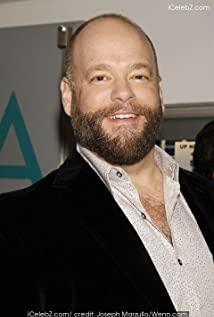1. The silent Lord—questioning the source
Is Lenny an Atheist? At first glance it seems so. In dreams he supports homosexuality and abortion, in reality, he smokes, bribes Thomas, and even says he doesn't believe in God. However, compared to the rest of the church, he seemed to be the most devout believer. He insists on denying homosexuality and abortion, rejects all self-marketing behaviors of the church, is unwilling to compromise with any secular forces, and demands that the church return to its purest original state, even if it means decline and destruction.
One thing that is the same between these two contradictory images, and which Laney has been emphasizing, is that he never received a response from God. Is a silent God equal to nothing? Some atheists think so. They ask believers to show them God, and even curse at God on stage, proving that God does not exist by saying that God does not respond. If God appears and responds, then things will be simple. This is also what Lenny envies Gutierrez. Gutierrez, who has met angels, will not have any doubts about the existence of God at all. His question is simply whether he can overcome the fear of engaging in a relationship that increases the likelihood of crime. And Lenny is always in this doubt, just like his teacher Spencer.
In the second half of the episode, Spencer opens up to Lenny about the midlife crisis of faith he's going through, and believes Lenny is going through the same crisis. In fact, this kind of crisis also exists in our life. When a person is young, he believes in the truth, believes that good people will be rewarded, and even if he sees some darkness, he is still willing to believe that the world is beautiful. However, after reaching middle age, having experienced all kinds of darkness and tasted a lot of ups and downs, I began to doubt whether the world is still beautiful, whether there is still hope for human beings, and whether the words about truth are just an illusion or even a deception. As a result, some people no longer believe in the truth, and become egoists who don’t care about the flood after death, doing harmless things without any psychological burden, thinking that this is called seeing through. In the same way, when a young man who had a good vision of the God in the hymn enters middle age, he sees a lot of injustice in the world, sees a lot of discord within the church, and finds that the whole church is just another Vanity Fair in the veneer of the divine , will he still believe in the God the church speaks of? In the face of this midlife crisis, Spencer's approach is to switch the motivation for his actions from faith to self-realization—since the church is a power game, I'm playing the game and winning the game. However, at the last moment of his life, even Spencer, who seemed to have no faith in God, begged Lenny for the answer to the question: Does God really exist? He appears to have come out of a midlife crisis and become an atheist, but he didn't come out of it until his death.
Spencer once accused Lenny's seemingly devout fundamentalist behavior in an argument that he was simply taking revenge on the world for being abandoned by his parents as a child. Spencer still partially misunderstood his students at the time. All of Lenny's behavior can be attributed to the shadow of childhood using psychological methods, but what has always stirred Lenny's heart, made him uneasy and acted, is the feeling of being thrown in everyone's heart, it's just this feeling of being thrown away. In Lenny it can be embodied as being abandoned by his parents. In Christian parlance, God created us and threw us into this chaotic world and never said a word. Laney has always wanted to meet his parents, just like every Christian wants to go back to Eden and meet his creator. Our parents only created the flesh of our animal existence, and our human existence has a different source. There has always been a desire to return to this source, but this desire has never been fulfilled. As Heidegger said, we look for the hometown of the soul with eternal nostalgia, and the hometown is always in the center of the continent. Ordinary believers can find the reason for being thrown and the hope of returning home from the Bible. However, Lenny, who has studied theology for many years and understands that the meaning of scriptures depends on human interpretation, cannot simply rely on scriptures to solve this problem. , he must face the feeling of being thrown all the time. This impossibility of returning culminates at the end of the film - at the end, Lenny meets his parents, so what? His parents still left him without any explanation, leaving him alone in this world as they did before.
Laney wanted to meet God and ask him why he created this unjust world and his ill-fated destiny, just as he wanted to meet his parents and ask them why they abandoned him in the first place. Even if the possibility of meeting is infinitely close to zero, the pursuit of meeting is still meaningful, and it can even be said to be the only meaning of life as a human being. Spencer's dying blessing, that Lenny would find his parents, was not so much a blessing to finally meet the source as an encouragement to continue his quest. God is indeed silent, but faith in God guarantees the meaning of the world, that our lives are not animal lives fighting each other for material comfort, that we are not toiling in the world in vain until we die. Even if God never answers, people still pray devoutly, and prayer itself soothes people's fears of a meaningless world.
Of course, even after believing in God, people will still fall into another kind of panic: how to do it in accordance with God's will? Or what can we do to ensure that our lives have meaning? That's exactly what Laney has been trying to do for the first half of the episode - get people to face it.
God is silent, and the understanding of scriptures contains subjectivity. People can only speculate on God's will from the certainty of the real world. No matter how the world changes, there is one thing that cannot be denied, that is, foreign objects, including people, have the instinct to preserve themselves. So it is certain that God is life-affirming. Spencer accused Laney of denying abortion because of his resentment of his parents who abandoned him, while Laney denied homosexuality and abortion because they were a denial of reproduction and survival. At the same time, selfish desires and the fights they cause should also be denied, because fights mean harm to life. In Laney's vision, people who come to church on Sundays in pursuit of fame and fortune should be excommunicated because their lives are not doing what God wants them to do. The church should only accept a few people who truly torture their lives with their faith, instead of pleasing the majority to ensure their own survival and growth. Those who remain lustful after listening to the Gospel should be abandoned, not forgiven again and again. As the church of the city of God, it should make its position clear, and constantly warn those who covet worldly pleasures that their lives deviate from the way of God.
This of course in modern society means cutting yourself off from the masses, but such a church is still attractive and has a great charm. When people find out that churches that seem to be full of love and peace are nothing more than companies selling ultimate care solutions, they naturally turn to real churches. However, do modern people really need such a real church?
2. Commodities that satisfy spiritual needs—the desire of the atomic individual for sociality
At the end of the last century, people rejoiced at every advance in science, the proportion of atheists was increasing, and it was believed that with the prosperity of science, religion would gradually disappear into the dust of history. However, what is unexpected is that in the 21st century, the number of people who believe in religions continues to increase. Although the church has indeed lost its former political authority, the number of people participating in religious activities has not decreased. Small denominations and even emerging religions continue to emerge. People who seem to be increasingly rational have invested a great deal of enthusiasm in religion.
This phenomenon is the inevitable result of modern society itself. The historical process of modernization separates everyone from the community where they belong and becomes an independent individual who is separated and opposed to each other, but the social needs of human beings have not been eliminated. With the development of the commodity economy, the material connection mediated by money has gradually expanded, and in fact extensive exchanges between people have been realized. However, the development of such exchanges is based on the separation and confrontation between people. People's need for community at the emotional level cannot be fulfilled in this interaction. Originally, the modern state could be used to satisfy this emotional need for community, but with the end of the US-Soviet confrontation and the rise of neoliberalism, the state has increasingly shown its falsehood as an ideology. Although people are still in the discourse system of patriotism, they have become more and more inclined to understand the state as the union of individuals at the level of interests, rather than recognizing its value attributes. Therefore, the emotional community has become a blank to be filled in the life of modern people.
However, just as Nietzsche's revelation of the state of modernity that "God is dead", after the baptism of modern science and positivism, it is difficult for people today to believe that there is a super-perceptual world. All the old community consciousness, family, country, religion, etc., have been branded with "ideology" and will never be turned over. But people really need a sense of community, so there is a paradoxical scene: people clearly know the falsity of an ideology, but they all pretend to believe it in tacit understanding, in order to use it to meet their real needs . As most people in the church understand, most believers do not really believe in God very sincerely, and their daily life is not immersed in the belief in God, but they just go to church on Sundays to seek a kind of spiritual comfort or identity. If this church can't satisfy them, then they turn to another church or another religion, where the church becomes one of those services, selling a solution to people's spiritual needs on the market. And this market is fair. With the completion of the separation of church and state, the Catholic Church no longer has political power, and can only compete fairly with other churches, religions and even superstitions in civil society. Church personnel continuously optimize their own operation strategies to achieve this. KPI indicators such as the number of believers, donations, and activity popularity. Therefore, the external affairs of the church can be outsourced to an American who is a marketing professional to manage and operate, regardless of whether she is religious or not. Church decisions are no longer based on belief, but appeal to the masses.
This practice of turning religion into business and packaging the sacred as a commodity will be opposed by those who truly believe in God. However, the reality is cruel: if the church really implements devout beliefs and adopts a "narrow door" way of doing things, regardless of whether there are personnel conditions within the church to implement this way of doing things, even if it really does this, just as Sophia said the result was tantamount to suicide. Under the coercion of modernity, unless they are born with strong religious feelings or encounter a major problem of the meaning of life, most people will not choose such a tiring and troublesome church. And crowned with "backward", "pretend", "mental" and other evaluations. Even Esther, who was the only disciple of Lenny in the early stage, seemed to eventually return to the ordinary life of being a husband and a child, rather than staying by his side to continue a sacred life.
Lenny's early efforts are like a return to primitive Christianity, and modern society has produced non-ideological religious commodities more suitable for modern people, so his return is doomed to fail. However, the status quo that the needs of the community are falsely satisfied is real. Is it possible to bridge the vulgarized individual life and the community life that is limited to the sacred? In the last three episodes, the show gave a tentative answer.
3. God's Smile - True Reconciliation between Individuals and Society
In the last three episodes of the series, the rhythm suddenly became hurricane and rushed. Almost every sentence is full of meaning, and it is impossible to come here one by one. Our main concern is the change in Lenny's understanding of God. The silent God is extremely real but irreversible, and the modern God is popular with people but is entirely manufactured. So how should people believe in God?
During his trip to Africa, Laney formally stated that God is peace and love for the first time, which seems to be a surrender and identification with the modern God. However, the love here is different from the love that modern people talk about.
In the modern church, "loving one's neighbor" has been elevated to a higher position because it enables atomic individuals who have been separated from each other to reconnect by acceptance of biblical admonitions, but just as the vindicator may at the same time be Like hypocrites, this kind of love derived from religious concepts is often weak and even hypocritical in reality. In the early stage, Lenny's seemingly cold and unfeeling words and deeds were largely derived from the denial of this practice - emphasizing that "loving one's neighbor" is only to please the public, creating a surface of harmony, and then covering up the "love of one's neighbor". The tension that comes with sin" brings us farther and farther from God. In Lenny's belief model, each person must first face God individually as an individual, admit his insignificance before God, repent of his sins, and then naturally treat God's other creatures with kindness. At this time, believers can naturally develop great love for all people by virtue of their faith. No matter whether others are poor or rich, good or evil, they can love equally, because all people are equal before God. As a private emotion, the small love that is close and distant will only hinder the realization of this big love.
However, under the impact of reality, and finally in the death of Dussolier, Léniy realized that this kind of love will drown out true love, and in another way, he re-understood Jesus' love for his neighbor. " teachings. What is a "neighbor"? Neighbors are not relatives or friends. This is a transcendence of traditional clan ethics and a transcendence of personal likes and dislikes. However, neighbors are not all people. Jesus did not require people to give equal love to everyone. There is still a difference in love between near and far. A neighbor is someone who happened to be next to us when we were thrown into the world by God, he could be a Jewish priest, he could be a Samaritan, we could have grown up together, or we could have just met on an impromptu trip . Neighbors are the people we encounter in the contingent and uncontrollable situations of our lives through which our lives unfold through our relationships with whom we form our primary link to the world. If great love is to give equal love to everyone, then for the finite, it means only a thin, conceptual love of all people, that is, no love. Love for all people, first of all, is to love neighbors, and then to expand the scope according to one's actual ability, just as Jesus loves all people and Jesus loves the disciples around him more, the two are not contradictory.
Only by denying great love as an idea can true great love be revealed. Loving neighbors must be premised on great love. If there is no love for everyone in our hearts, then we can only get close to our relatives and friends or people who are similar to us, and will not have strong feelings for strangers we meet by chance. When Schweitzer decided to make it his life's work to practice medicine in Africa, he said it was because he had heard God's call, and he wasn't lying. The suffering in Africa has passed through the eyes of many people, but it only touched his heart, which does not come from ideas, nor from life experience. Just as the love seems to be the most personal, true fall in love does not come from external standards or intercourse experience. The strong emotion that erupts in an accidental moment can only come from something mysterious. The ancient Greeks called it destiny, Buddhism called it karma, Christianity called it God's arrangement, and only positivist Americans tried to chalk it all up to something like a childhood complex. But the crux of the matter is, how to deal with these emotions? Sinners are obscured by their selfish desires and ideology, and they turn a blind eye even if this contingency has already happened to them; while saints can sincerely express the great love that exists in their hearts according to their actual life situations. It is expressed and practiced without any distortion. The God who calls is both the God of arranger and the God of love, and the latter is the heart of faith. In the episode, when Lenny understood the true meaning of this great love, he was finally willing to admit that in addition to his parents, he was also looking for and missing the lover he met on the beach in the summer of 18.
Then, just like giving up Juana's hometown and coming to Venice where God (parents) is, Lenny gave up his love and chose a more important mission. In the speech at the end of the play, Laney expressed his knowledge of God through Juana's words. We don't have to dwell on the accidental blessings and misfortunes in our lives, of course they come from God's arrangement, but that is not the core of our beliefs, and God is not used to comfort or even change the misfortunes in our lives. Just as Jesus refused to use miracles to testify to himself, Lenny rarely showed miracles, because they knew that faith from miracles would block true faith, and only false prophets like Tonino in the show would use miracles to attract believers. In the face of the pleas of suffering people, God is silent, and God exists in this long silence rather than a brief miracle. But that doesn't mean life is destiny, because God is still smiling. God put this smile in everyone's heart, so that everyone has the ability to love, and discovering, manifesting and practicing the love in one's own and others' hearts is the way to transcend suffering in this world. The smiles of everyone whom Laney implored point to the future that this path leads. What Juana is referring to as God is a torn thread, superficially referring to the expression of a smile, but in a deeper sense the possibility of the free space that God opens up in the thread woven by fate. It was at this point that Lenny actually buried the parents of God as arrangers and embraced Jesus as God of smiles.
When we leave the context of Christianity, we will find that what is said here is actually the reconciliation of the individual and the society. Everyone has special endowments, circumstances, and different social relationships with others, but at the same time everyone is a manifestation of social existence and is one with all others. But just as great love is one with the love of one's neighbor, so too is social universal love and individual special love. We don't limit our love to our own relatives and friends, but we don't disregard those around us in order to help a stranger. Today people deny universal love or give it to God, and only recognize the special love developed by self-interest, so they can only find their own social existence in religion. And when everyone becomes a conscious social being, society no longer needs to claim itself in the name of God. At this time, God as the arranger will also retire in the completion of the humanized nature.
View more about The Young Pope reviews











